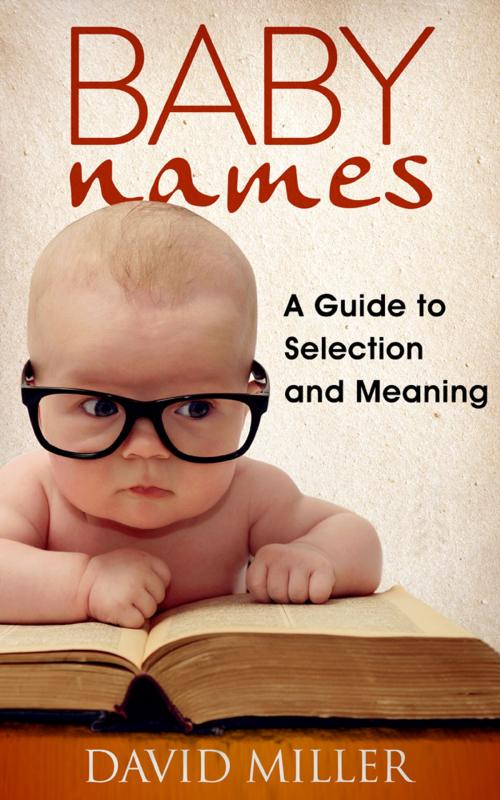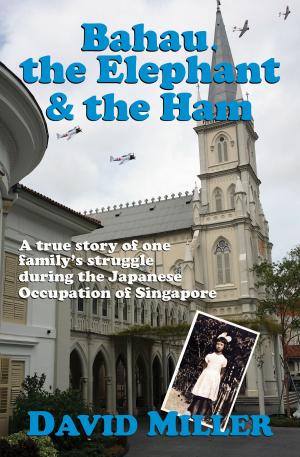Baby Names - A Guide to Selection and Meaning
Nonfiction, Family & Relationships, Babies & Toddlers, Baby Names| Author: | David Miller | ISBN: | 1230002106595 |
| Publisher: | David Miller | Publication: | January 20, 2018 |
| Imprint: | Language: | English |
| Author: | David Miller |
| ISBN: | 1230002106595 |
| Publisher: | David Miller |
| Publication: | January 20, 2018 |
| Imprint: | |
| Language: | English |
Human beings have derived a system of names, which are meant to distinguish one from the other. These names mean different things to different people. Even the process of naming is of interest when trying to understand the culture of a given group of people. Some names are hereditary and signify a link with many ancestors, while others are modern pet references that are meant to almost be humorous (Rosenkrantz & Satran, 2009). Other names are acquired in life as a consequence of one’s situation, characteristics, or behaviour. The prevailing convention in Western society is to have a First name or Given name, followed by a middle name, and finally, a surname. Thus, a Robert Mathew Smith can describe Robert as his first name and Smith as his surname. In America, there is a new convention of adding Jr. or Sr. in order to distinguish children from their parents. Others have adopted the convention for monarchs to signify the changes in generations. Thus, you can have a Jeffery MacDonald III, meaning that person is a third generation member of the family with that name.
[Matteo - donna incinta con trenino di legno con nome bambino]
Image 1: Matteo - donna incinta con trenino di legno con nome bambino
Family members also share a name in order to signify their unity and community as a dynasty. Of course, some might consider it to be rather pretentious to acquire double-barrelled names or even to insist upon children taking the names of their father. Latin and Spanish communities also have different naming conventions, which fully incorporate the maternal identity, even if the child is a male. There is yet another category of women, who will lose their maiden name upon marriage, thus acquiring their husband’s identity. This book is primarily focused on the selection of baby names. That is a task that can become a joy or source of sorrow for new parents. They can cause a lot of offense or give many people a lot of joy/pride, depending on how the decisions have been made. Even control over the process is sometimes an issue of contention. For example, in some African societies, it is the paternal grandfathers, aunts, and uncles who name a child, whereas in contemporary Western society, it is the parents who decide (with the woman playing a very active role).
Human beings have derived a system of names, which are meant to distinguish one from the other. These names mean different things to different people. Even the process of naming is of interest when trying to understand the culture of a given group of people. Some names are hereditary and signify a link with many ancestors, while others are modern pet references that are meant to almost be humorous (Rosenkrantz & Satran, 2009). Other names are acquired in life as a consequence of one’s situation, characteristics, or behaviour. The prevailing convention in Western society is to have a First name or Given name, followed by a middle name, and finally, a surname. Thus, a Robert Mathew Smith can describe Robert as his first name and Smith as his surname. In America, there is a new convention of adding Jr. or Sr. in order to distinguish children from their parents. Others have adopted the convention for monarchs to signify the changes in generations. Thus, you can have a Jeffery MacDonald III, meaning that person is a third generation member of the family with that name.
[Matteo - donna incinta con trenino di legno con nome bambino]
Image 1: Matteo - donna incinta con trenino di legno con nome bambino
Family members also share a name in order to signify their unity and community as a dynasty. Of course, some might consider it to be rather pretentious to acquire double-barrelled names or even to insist upon children taking the names of their father. Latin and Spanish communities also have different naming conventions, which fully incorporate the maternal identity, even if the child is a male. There is yet another category of women, who will lose their maiden name upon marriage, thus acquiring their husband’s identity. This book is primarily focused on the selection of baby names. That is a task that can become a joy or source of sorrow for new parents. They can cause a lot of offense or give many people a lot of joy/pride, depending on how the decisions have been made. Even control over the process is sometimes an issue of contention. For example, in some African societies, it is the paternal grandfathers, aunts, and uncles who name a child, whereas in contemporary Western society, it is the parents who decide (with the woman playing a very active role).















